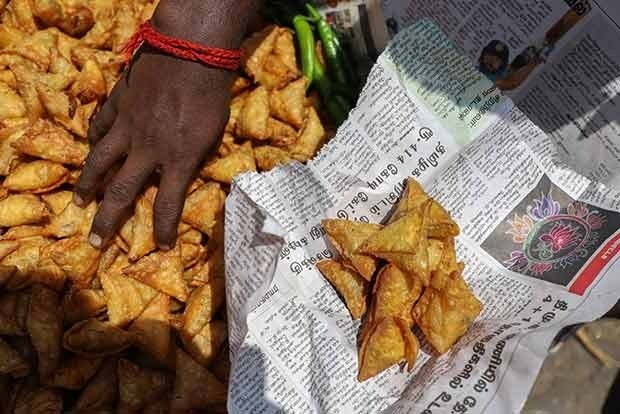Food regulator FSSAI has asked food vendors and consumers to immediately stop using newspapers for packing, serving and storing food items citing significant health risks.
The Food Safety and Standards Authority of India (FSSAI) is working closely with the state food authorities to monitor and enforce regulations in this regard.
FSSAI Chief Executive Officer (CEO) G Kamala Vardhan Rao “strongly requested consumers and food vendors across the country to immediately stop using newspaper for packing, serving and storing food items.” He expressed concern over the use of newspaper for wrapping or packaging food and also noted the significant health risks associated with this practice.
“Ink used in newspapers contains various bioactive ingredients with known negative health effects, which can contaminate food and cause health problems during consumption,” FSSAI warned on Wednesday.
Additionally, printing ink can contain chemicals, including lead and heavy metals, which can leach into food, posing serious health risks over time, the regulator said.
“Furthermore, newspapers are often subjected to various environmental conditions during distribution, which makes them susceptible to contamination by bacteria, viruses or other pathogens that can be transferred to food, potentially causing foodborne illness,” FSSAI said.
FSSAI has notified the Food Safety and Standards (Packaging) Regulations, 2018 which strictly prohibits the use of newspaper or similar materials for storing and wrapping food.
According to this regulation, newspapers should not be used to wrap, cover or serve food or to absorb excess oil from fried food.
Emphasizing the paramount importance of food safety, Rao urged all food vendors to adopt responsible packaging practices that prioritize the well-being of their customers.
He also highlighted that by discouraging the use of newspapers as food packaging materials and promoting safer alternatives, FSSAI reiterates its commitment to ensuring the safety of the country’s food supply.




